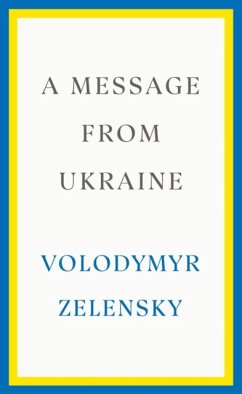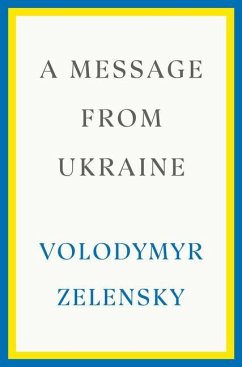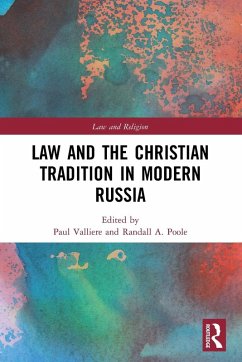
The Intellectual Foundations of Modern Ukraine
The Nineteenth Century
Versandkostenfrei!
Versandfertig in 6-10 Tagen
43,99 €
inkl. MwSt.
Weitere Ausgaben:

PAYBACK Punkte
22 °P sammeln!
This is the first synthetic book-length study in English of the Ukrainian nation-building during the "long" nineteenth century.The narrative follows the evolution of the Ukrainian intellectuals and their ideas from the Age of Enlightenment at the end of the eighteenth century and to the era of Positivist science and social reform at the beginning of the twentieth century. The book focuses on the intellectuals, since in the case of Ukrainians-the nineteenth-century epitome of stateless and overwhelmingly plebeian people-the intellectuals played a pivotal role in defining the Ukrainian national ...
This is the first synthetic book-length study in English of the Ukrainian nation-building during the "long" nineteenth century.
The narrative follows the evolution of the Ukrainian intellectuals and their ideas from the Age of Enlightenment at the end of the eighteenth century and to the era of Positivist science and social reform at the beginning of the twentieth century. The book focuses on the intellectuals, since in the case of Ukrainians-the nineteenth-century epitome of stateless and overwhelmingly plebeian people-the intellectuals played a pivotal role in defining the Ukrainian national project. The central theme is intellectuals' engagement not only with each other, but also with the people and land they represented. Views of Ukraine from the imperial and "world" capitals, larger intellectual currents, and geopolitical games are not neglected. Nevertheless, its main focus is on the Ukrainian intellectuals' visions of Ukraine's past, present, and future, their responses to the challenges of modernity, their ideals, agendas, and programmes.
The Intellectual Foundations of Modern Ukraine is the ideal resource for upper-level undergraduates, postgraduates, and scholars interested in cultural anthorpology, political science, political philosophy, and the history of modern Ukraine.
The narrative follows the evolution of the Ukrainian intellectuals and their ideas from the Age of Enlightenment at the end of the eighteenth century and to the era of Positivist science and social reform at the beginning of the twentieth century. The book focuses on the intellectuals, since in the case of Ukrainians-the nineteenth-century epitome of stateless and overwhelmingly plebeian people-the intellectuals played a pivotal role in defining the Ukrainian national project. The central theme is intellectuals' engagement not only with each other, but also with the people and land they represented. Views of Ukraine from the imperial and "world" capitals, larger intellectual currents, and geopolitical games are not neglected. Nevertheless, its main focus is on the Ukrainian intellectuals' visions of Ukraine's past, present, and future, their responses to the challenges of modernity, their ideals, agendas, and programmes.
The Intellectual Foundations of Modern Ukraine is the ideal resource for upper-level undergraduates, postgraduates, and scholars interested in cultural anthorpology, political science, political philosophy, and the history of modern Ukraine.













